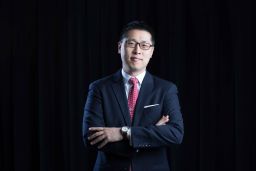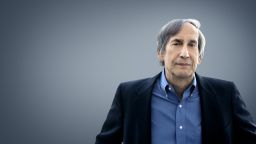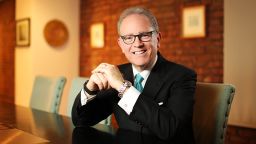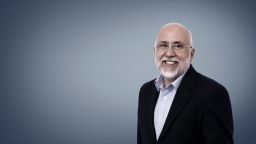CNN Opinion asked a group of expert commentators to weigh in with their reactions to the historic meeting between Donald Trump and Kim Jong Un. The views expressed here are solely theirs.
S. Nathan Park: At least we’re not on the path to nuclear war

It would be wise to focus on the big picture first. Just a few months ago, North Korea and the United States were walking towards a nuclear war. Today, we are no longer on that path.
That said, the Singapore Agreement between President Donald Trump and Chairman Kim Jong Un could have been better. Ceasing the U.S.-South Korea war games is a significant concession, and to receive in return only a “complete” denuclearization—rather than the complete, verifiable, and irreversible kind to which the Trump administration has been referring in the entire lead-up to these talks—is not quite enough, at least in the immediate term.
Yet we have always known no matter what the words on paper said, the actual opening and denuclearizing North Korea would be a matter of execution. The agreement still contains enough to make it a starting point, most significantly by incorporating the Panmunjom Declaration between North and South Korea that was made in the inter-Korean summit in April. Ideally, the next step would be the actual integration of the Singapore Agreement and the Panmunjom Declaration by beginning a trilateral negotiation involving US, South Korea and North Korea, to create a durable system of denuclearization and economic exchange.
S. Nathan Park is a Washington D.C.-based attorney whose commentary on the Korean Peninsula has appeared in the Wall Street Journal, Washington Post, Financial Times, Atlantic, Foreign Policy and elsewhere.
Aaron David Miller: Trump’s hooked on the history books
Having reduced expectations to an optical zero, President Donald Trump produced a summit that likely exceeded his own: historic visuals; a joint signed statement and a way forward to end the Korean war and negotiate North Korea’s nuclear program.
Here are my takeaways:

The summit of the vanities: This meeting wasn’t about negotiating substance. It was instead a highly personalized summit dominated by the leaders and their own agendas. Kim Jong Un, perhaps the world’s last truly totalitarian leader and an international pariah, sought legitimacy and recognition on the world stage. Trump, who risked a potential train wreck by agreeing to a hastily arranged summit, came to demonstrate that unlike his predecessors, he alone could make history and break through decades of failure in trying to tame North Korea’s nuclear program.
Trump is hooked: I saw a similar process in the early 1990s when Israeli Prime Minister Yitzhak Rabin and Palestinian President Yasser Arafat offered then-President Bill Clinton a dance on history’s stage via the Oslo peace process, including a signing ceremony on the White House lawn. Before this is done, we’ll likely see Trump, Kim and South Korean President Moon Jae-In clasping hands ending the Korean war. Judging by Trump’s demeanor last night, he’s hooked. This historic summit offers him the possibility of a ride into the history books, and he’ll likely fall in love with the process designed to keep it alive.
Welcome to the long game: The US and North Korea have a framework for negotiations and a mandate from the leaders to move forward. Secretary of State Mike Pompeo will be key, and the hawkish National Security Adviser John Bolton best be careful he doesn’t appear to be ruining Trump’s party. If we’re lucky, this will produce a multi-year process driven by a North and South Korea track that will help defuse tensions and prevent escalation. Complete denuclearization of North Korea isn’t likely in the cards; but stability – maybe even peace on the Peninsula – may be. If we’re smart, we’ll take it.
Aaron David Miller is a vice president and distinguished scholar at the Woodrow Wilson International Center for Scholars and author of “The End of Greatness: Why America Can’t Have (and Doesn’t Want) Another Great President.” Miller was a Middle East negotiator in Democratic and Republican administrations. Follow him @aarondmiller2.
Katharine Moon: Trump’s underwhelming performance in Singapore

How should we characterize the Singapore summit between Donald Trump and Kim Jong Un? Underwhelming. Their signed joint statement lists aspirations – and without a single word of substantive commitment by either side. The summit yielded no specific policy or strategy on peacemaking, denuclearization or economic development trajectory in North Korea.
But Trump did make two unilateral statements that are appalling. First, he said the US will cease joint military exercises with long-time ally South Korea. The Ministry of National Defense in Seoul appears to have been blindsided and stated that it will seek “clarification” from Washington. He also pulled the rug from under the Pentagon and Secretary of Defense James Mattis, who had repeated on Monday that the US troop presence and military exercises are not up for negotiation right now.
Second, Trump said China is to be thanked for tightening up sanctions on the border. However, regarding China’s laxness in the last two months, he responded, “But that’s okay.” The President collapsed the UN and US sanctions regime with that unscripted phrase, essentially giving a green light for countries to disregard sanctions regimes moving forward.
The best one can hope right now is that Kim had a wonderful time marveling at Singapore’s beauty and high level of economic development – enough to motivate him to pursue economic restructuring and stop his previous focus on militarized power.
Katharine Moon is professor of Political Science and Wasserman Chair of Asian Studies at Wellesley College. She is also a nonresident senior fellow and the inaugural holder of the SK-Korea Foundation Chair in Korea Studies in the Center for East Asia Policy Studies at The Brookings Institution.
YJ Fischer: Trump’s North Korea deal likely won’t be as good as Obama’s Iran deal

President Donald Trump’s meeting with North Korean leader Kim Jong Un turned out to be a modest affair. For all the Nobel Peace Prize buzz, the two leaders talked one-on-one for about 20 minutes, when you factor in slow consecutive translation. The meeting was visually dramatic but substantively shallow.
The minimal progress is not surprising considering that China, which has the greatest leverage over Kim, wasn’t there. It is also a cautionary tale about the difficulty of achieving a comprehensive and verifiable nuclear deal with a rogue regime. Trump and Kim still need to agree on principles of disarmament, create a timetable for implementation and develop stringent verification measures.
This last hurdle will be particularly tricky. Trump set a high bar when he declared the Iran nuclear deal’s invasive inspections to be insufficient. The Obama administration had secured 24/7 monitoring of every nuclear site in Iran, the right to access non-declared civilian and military sites and sanctions that could snap back at the first sign of violations. Achieving that standard with North Korea will be difficult no matter how good the personal dynamics between Trump and Kim – surpassing it will be nearly impossible.
This summit was a good step, but it’s the first in a long process. What comes next will be even more important. North Korea has historically been less belligerent when at the negotiating table. That’s reason enough to keep them there. But for a meaningful substantive agreement, Trump may come to wish he could get terms as good as the Iran deal he trashed.
YJ Fischer served at the State Department from 2012-2016. She co-wrote the 2016 Democratic Party platform and served on the Clinton-Kaine Transition Team. Follow her on Twitter @yjfischer
Vipin Narang: Singapore summit buys both Trump and Kim time

The Singapore summit showed why Kim Jong Un pursued nuclear weapons in the first place. Although he might have declared his nuclear weapons force “completed” in November 2017, it only achieved political completion when he sat down with the President of the United States as an equal. The summit shows why nuclear weapons are such a valuable commodity in international politics, legitimizing Kim’s pursuit of them.
And although Kim reaffirmed that the DPRK “commits to work toward complete denuclearization of the Korean Peninsula,” it has done so for almost a quarter century. Kim issued a vague meaningless pledge in exchange for a vague meaningless security guarantee from Trump. Neither side committed to anything that it has not already, and a lot will turn on whether any meaningful progress can be achieved under this renewed framework. But the bottom line is North Korea is not going to give up its nuclear weapons.
To be fair to the Trump Administration, the approaches of previous administrations–interminable working-level meetings that inevitably led to impasse and violations–had not worked, so this is at the minimum a novel approach that has at least temporarily reduced the temperature on the Peninsula. Trump even pledged to pause joint U.S.-South Korean “war games,” a significant concession to the DPRK. It bought both the U.S. and North Korea time. The question going forward is whether the momentum can be sustained to erect a stable deterrence regime between the two, or whether perceived abrogation of this declaration by either side will once again place us on the threshold of war.
Vipin Narang is an associate professor of political science at MIT. He is the author of “Nuclear Strategy in the Modern Era.” Follow him on Twitter @NarangVipin
Juliana Silva and Bill McGowan: Who won the optics of that first meeting?


If history is any guide, just one sit-down meeting between the heads of two rival nations is not likely to produce any substantive breakthroughs. Ronald Reagan and Soviet leader Mikhail Gorbachev needed three separate meetings to arrive at a deal and Egyptian President Anwar Sadat and Israeli Prime Minister Menachem Begin were ready to bolt Camp David with nothing accomplished before President Jimmy Carter brokered the Middle East Accords.
All bluster and rhetoric aside, how are we to determine whether Donald Trump or Kim Jong Un came out on top? In the absence of any real news or developments, it might just come down to who won the optics war, a battle that preoccupies these men perhaps above all others.
Kim emerged from his limo looking positively grim, his bowed head conveyed a certain defeatism. Trump emerged from his limo tugging at his jacket, looking tense, his red tie dangling, as usual, below his belt buckle.
Then they came together, emerging from opposite ends of the staging area, with Trump extending his hand slightly before Kim. And in the moment when their hands gripped, Kim achieved what his father and grandfather could not: he stood as an equal side by side with the President of the United States, with the American and North Korean flags equally displayed behind them.
This was the photo opportunity the North Koreans could only fantasize about, until now. Trump’s body language seemed to communicate an attempt at congeniality. Instead of the tug-of-war, macho handshake he gave French President Emmanuel Macron, he initiated a brief touch of the upper arm … nothing too aggressive or presumptuous.
After the initial handshake and awkward turn to cameras for the obligatory photo, Trump sought to establish his authority by showing Kim the way off the stage, as if he was guiding him to their table in the Mar-a-Lago dining room.
Once backstage, Kim seemed to lighten and relax, matching Trump’s touching of his adversary’s upper arm for the first time. Suddenly Kim seemed to be smiling more frequently, perhaps aware that he was on his way to the sit-down portion of the photo op, where the optics playing field was leveled for the first time.
Kim flashed more smiles than Trump then, especially when sitting down, where the Trump height advantage wasn’t a factor.
Trump appeared a bit sleepy, his lids carrying a heavy look. Kim, in contrast, seemed energized, beaming like a man who had just achieved what no one thought he could: legitimacy on a world stage.
Kim looked pleased with himself;Trump looked like someone forced to take a heaping tablespoon of castor oil, perhaps because Trump needs to come home with some sign of progress, some symbol of accomplishment. Kim bears no such burden.
Kim gets to smile because he wins by just showing up, as CNN contributor and former Director of National Intelligence James Clapper said, “not as a supplicant” but as an equal.
On the body language scale, round one (and we know there will be others) seemed to go to Kim Jong Un, simply based on the eagerness and willingness to be participating in these talks. Kim looked like a man who was getting exactly what he had hoped for. Trump, on the other hand looked like a man who had reluctantly been dragged to the negotiation table.
But there is one category that can safely be called a draw – one in which neither Trump nor Kim could claim victory without being laughed out of Singapore: The Hairdo Wars. In the battle between Kim’s double-wide mohawk and Trump’s multi-directional comb-over, no clear victor emerged.
Juliana Silva is a strategic communications adviser at Clarity Media Group, a global communications coaching firm based in New York City. Bill McGowan is the Founder & CEO of Clarity Media Group. He is the author of Pitch Perfect: How to Say it Right the First Time, Every Time. Follow him on Twitter @BillMcGowan22.
Euny Hong: Anyone who says they’re not confused is a liar

I’m confused by the summit, as is everyone. I have no sweeping conclusions, only incomplete thoughts:
1) Kim is following the rules of online blind dating: When meeting someone for the first time, claim from the outset that you have to leave at a certain time.
2) The shot of Trump and Kim shaking hands really looked like the setup for an SNL skit. There is definitely such a thing as too many flags.
3) I feel vindicated and smug, because I tried to tell everyone that this wasn’t the Camp David peace accords. That nothing was going to happen. They didn’t believe me.
4) There is a fine line between clever and stupid – to quote Spinal Tap – and it’s impossible to tell who is which.
5) I’m more convinced than ever that Trump and Kim aren’t really in charge here. This is a job for true Realpolitik professionals – neither Trump nor Kim fit that description, which is why they both looked so comfortable at the summit.
6) The media mocked Trump because he had said prior to the summit that he hadn’t really prepared, that he was going to suss out Kim by relying on “my touch, my feel.” Am I the only person who thinks that’s not the dumbest idea in the world? Because as it turns out, touch and feel were actually as good a method as any. He didn’t need to know anything for this summit. Neither did Kim.
7) But what do I know? Anyone who tells you they know exactly what is happening between the US and North Korea is telling a bald-faced lie.
Euny Hong?is the author of?”The Birth of Korean Cool: How One Nation is Conquering the World through Pop Culture”?(Picador 2014) and “Kept: A Comedy of Sex and Manners” (Simon & Schuster 2006).
Michael D’Antonio: Who’s isolated now?

In the President’s words – “honored” was how he described his feelings – in his several attempts to touch the North Korean despot, and in his optimistic prediction of success, I detected a Donald Trump at his most subdued as he faced a moment in Singapore that was all about making impressions.
It seemed to me, having studied the man closely for years, that he was personally pleased to finally be in Kim’s presence and perhaps a bit oblivious to the price he paid to get there
Kim spoke of the hard road that led to the summit. He followed a high-risk path of nuclear provocation to reach this moment of equality with the most powerful leader in the world
Although he owned – and bankrupted – casinos, Trump has never been a gambler himself. In the run-up to the summit he seemed unaware of Kim’s ultimate aim – legitimacy and prestige – and offered those to him to get him to the table
At the pre-talk photo-op, Kim proved he had prepared, expressing his delight at meeting President Trump in Singapore. Delighted he surely was as Trump reached out to touch him at least twice. These gestures might work in a first encounter of two American businessmen, but at a summit where every twitch will be used for propaganda purposes they served as a gift to Kim’s state media apparatus. It will make much of Trump announcing, “We will have a terrific relationship no doubt.”
Add to Trump’s warm approach to Kim the President’s recent brutal treatment of America’s closest allies – Canada. France, Germany etc. – and you can see the world being remade by North Korea. Trump wanted to act the tough guy in the run-up to the summit, and did so by bashing America’s friends.
Before Kim began to seek the summit, North Korea was called the hermit kingdom because of its isolation from world affairs. With his warm touches, Trump brought North Koreans in from their cold isolation. With his pre-summit behavior he put America is a much chillier place than it occupied when the nuclear crisis began.
Michael D’Antonio is author of the book, “Never Enough: Donald Trump and the Pursuit of Success” (St. Martin’s Press).
Samantha Vinograd: Summit as a new model for dictators

While we wait for the history books to mark whether this was another’s “eyes wide shut” fool’s errand – or a historic breakthrough toward increased stability and nonproliferation, we know one thing for sure. We have a North Korea model.
Every American should hope that President Trump is able to kick off a process that leads to not only complete, verifiable, irreversible denuclearization, but also a strategic shift in North Korea’s posture that tilts it toward respect for human rights and international law.
Regardless of which way this goes, however, the Singapore Summit will serve as a road map for dictators and would-be proliferators around the world: achieve a nuclear capacity, terrorize your people, and go right up to the brink of a nuclear standoff and you’ll get, in return, selfies and summitry.
President Trump should give diplomacy a chance, but the calibration of what we saw in Singapore earlier tilted toward sadists worldwide. Kim Jong Un was rewarded for pushing the envelope just far enough to get his flag flown next to the United States, legitimizing his reign of terror.
If away from the cameras President Trump did raise human rights, or if he did privately convey to Kim that this thaw has an expiration date, then he communicated costs for Kim’s misbehavior. Without those caveats however, we’ve just served a sociopath everything he’s wanted on a global platter,
Samantha Vinograd is a CNN National Security Analyst. She served on President Obama’s National Security Council from 2009-2013 and at the Treasury Department under President George W. Bush.
Frida Ghitis: What Trump’s gushing over a brutal tyrant tells us

There are two Trumps. The President put each on display over the course of little more than 48 hours. The contrast offered a stark and troubling spectacle. Trump went from verbally attacking the democratically elected Prime Minister of Canada, America’s neighbor and loyal ally, to unnecessarily praising a brutal tyrant.
To be sure, it is good that Trump is engaging in diplomacy with North Korea instead of going to war. We all should hope the process is successful, even if there are many reasons for skepticism. But there is no excuse for flattering a man like Kim Jong Un.
“It’s my honor,” Trump gushed sitting next to the young dictator, “and we will have a terrific relationship, I have no doubt.” There was no need for that and it was utterly inexcusable. Sometimes the road to peace requires making deals with unsavory people. It doesn’t require telling the world it’s an honor to sit with them. In fact, Kim did not seek to ingratiate himself with Trump, saying simply that the two countries overcame obstacles to reach this moment.
Kim presides over a country that keeps a system of concentration camps for anyone the regime deems disloyal along with their family members. Prisoners die of starvation, torture and exposure. A UN report described it in gruesome detail. His entire country is a prison, one guarded by a nuclear-armed regime that has repeatedly attacked its neighbor and threatened the United States. Trump had already elevated and fortified the regime and its leader by providing him with this staged photo-op. There was no need to add to that undesirable side-effect by slathering praise on the dictator.
Trump thought he would benefit from insulting a democratic leader - who answers to voters – and by embracing a tyrannical one who answers to no one. One Trump was petulant and surly, the other charming and warm. Trump has shown once again how much more comfortable he is with authoritarian leaders than with democratically elected ones. He has shown which ones he admires more.
Frida Ghitis, a former CNN producer and correspondent, is a world affairs columnist. She is a frequent opinion contributor to CNN and The Washington Post and a columnist for World Politics Review.
Get our free weekly newsletter





















